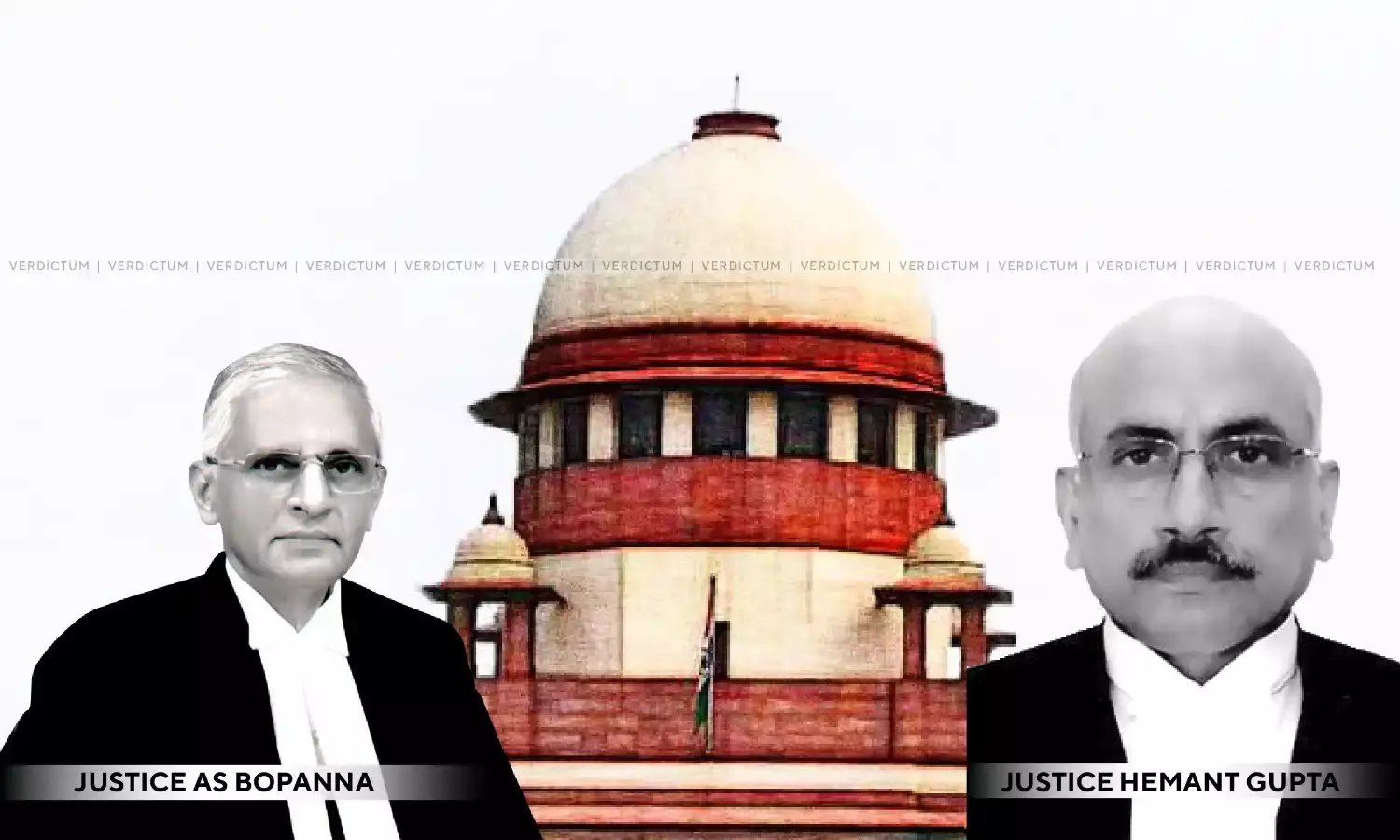Writ Jurisdiction Cannot Be Invoked In Pure Contractual Matters In The Field Of Private Law With No Statutory Flavor: Supreme Court
The Supreme Court on Monday ruled that matters which are purely contractual in nature and related to private law, having no statutory flavor must be adjudicated upon by a forum agreed to by the parties (Arbitration in this case).
The Two-Judge Bench of Justices A.S. Bopanna and Hemant Gupta were hearing an appeal where the Appellant sought for the quashing of the Judgment passed by the High Court of Gauhati directing the Appellant to pay Rs. 31,57,16,134/- with interest at the rate of 18% p.a to the Respondent. The appeal of the Appellant against the Judgment of the single Judge had been dismissed by the Division Bench of the High Court.
In this case, the Respondent's bid for the tender was accepted by the Appellant for construction and improvement of a road. Later, a joint survey report was prepared concerning the work done by the Respondent. The report, however, got rejected by the competent authority. The Respondent was informed that his claim for the unpaid amount was beyond the scope of the contract and that any extra claim beyond the stipulated time period is baseless.
In the writ petition filed before the High Court, the Appellant had raised an objection that since there was a clause of Arbitration in the agreement entered between the parties for the resolution of disputes, the Respondent ought to have resorted to arbitration.
The Appellants relied upon precedents and contended that in view of the arbitration clause available to resolve the disputes, the order of the High Court was unwarranted and untenable, while, the Respondent argued that the basis of the joint survey report was erroneous and is not sustainable in the court of law since it was signed not by a competent authority.
The apex court after considering the contentions the parties held that the disputed questions of facts cannot be adjudicated in a writ petition. "Though, the jurisdiction of the High Court is wide but in respect of pure contractual matters in the field of private law, having no statutory flavour, are better adjudicated upon by the forum agreed to by the parties.", the Court held.
The Bench observed "The dispute as to whether the amount is payable or not and/or how much amount is payable are disputed questions of facts."
There is no admission on the part of the appellants to infer that the amount stands crystallized. Therefore, in the absence of any acceptance of Joint Survey Report by the competent authority, no right would accrue to the writ petitioner only because measurements cannot be undertaken after passage of time" the Court opined.
The SC further held that the resurvey cannot take place again but the measurement books of the work executed from time to time would form a reasonable basis for ascertaining the amount due and payable to the Writ Petitioner, but the Court would not be appropriate authority to decide upon this and the matter be adjudicated through Arbitration.
Moreover, the Court was of the view that "collusion of some of the officers of the appellants with the contractor cannot be ruled out. Such collusion seems to be the basis of the writ petition filed before the High Court," allowed the appeal and dismissed the writ petition.
(Union of India & Ors. v. M/S Puna Hinda)




